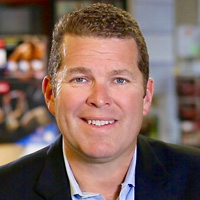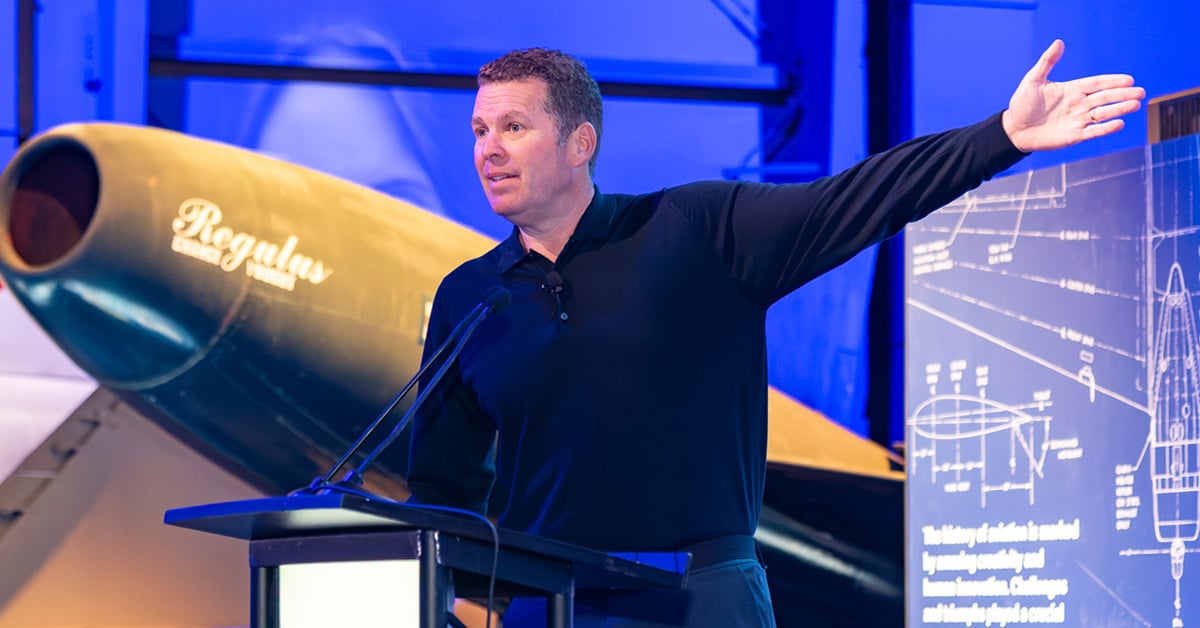The African proverb or quote from Franklin D. Roosevelt in the title above provides a useful context to help us frame difficult or challenging situations: Smooth or calm seas never made a good or skilled sailor. In this post, let’s take a look at the benefits and advantages of adversity. Answering the question: "Does adversity make you stronger?"
 Adversity can have many positive effects on our lives. Adversity makes you stronger and more resilient, help us to develop new skills and perspectives, and give us a greater appreciation for what we have.
Adversity can have many positive effects on our lives. Adversity makes you stronger and more resilient, help us to develop new skills and perspectives, and give us a greater appreciation for what we have.
Research has shown that people who have faced significant adversity in their lives are often more successful than those who have not. They are more likely to have higher levels of education and income, and to report greater levels of life satisfaction. So, next time you are facing a difficult situation, remember that it may be just what you need to help you reach your full potential.
In short, easy situations rarely improve your skills, whereas challenging experiences often provide the best lessons. I believe that struggle builds strength, and that you learn more from losing than you do from winning.
Whether it’s in sports, music, business, or life in general, difficult situations and stronger opponents will push you beyond your existing boundaries.
When others give up in the face of adversity, your persistence and determination in the face of adversity will win the day.
What Does the Word Adversity Mean?
Overcoming adversity means facing and conquering difficult challenges or hardships with resilience and determination. It involves staying strong, adapting to setbacks, and finding solutions despite obstacles. By overcoming adversity, you build strength, develop new skills, and gain confidence, ultimately growing into a more capable and resilient individual.
To me, adversity means an overwhelming challenge, a seemingly insurmountable obstacle, a wall so thick that you have no idea how you’re going to get through it, over it, under it, or around it. For most of us, adversity is not a welcome word, and why should it be? After all, we’re human, and humans are wired to avoid pain and pursue pleasure—and adversity is directly associated with pain. So, it’s no wonder when folks hear about adversity, their first instinct is to avoid it. But what if we could reframe adversity and see it as an opportunity instead of a problem? What if we could see it as something that can make us stronger, wiser, and more capable?
Examples of Adversity
Adversity is the ultimate test. It is what separates those who dream from those who do. The best leaders, the strongest teams, and the most unstoppable people are forged in challenge, not comfort.
Here are examples of adversity and how to push through each:
1. Getting Knocked Down - Again and Again
Failure is not the end. It is the proving ground. Whether it is a lost job, a failed business, or a plan that completely backfires, setbacks happen. What matters is how you get back up. The key is to shift your mindset. Instead of seeing failure as defeat, see it as data. Learn, adjust, and move forward stronger.
2. Leading Through Uncertainty
The hardest moments in leadership come when there are no clear answers. The mission is unclear, the path is unknown, and the stakes are high. The key is to focus on what you can control—your thoughts, focus, and actions. Set a clear objective, communicate with confidence, and rally your team toward what matters most.
3. Facing a Physical or Mental Breaking Point
Every Navy SEAL hits a moment in training where the body wants to quit. That is when the mind has to take over. Pain, exhaustion, and fear can break you—or they can forge you. The secret is one more rep, one more step, one more breath. Push past the breaking point and you will discover a whole new level of strength.
Winning starts with the first action - how you think.
Your mindset shapes every decision, every challenge, and every victory. The best leaders, teams, and competitors win first in their minds before they ever step onto the field. In this article on how to win, Alden Mills breaks down the first action of winning thinking and how to train your mind for success.
Searching for the Meaning of Adversity in Our Lives
Man’s Search for Meaning is a 1946 book by Viktor Frankl—an Austrian neurologist, psychiatrist, philosopher, author, and Holocaust survivor—chronicling his experiences as a prisoner in Nazi concentration camps during World War II, and describing his psychotherapeutic method, which involved identifying a purpose in life to feel positive about, and then immersivily imagining that outcome. According to Frankl, the way a prisoner imagined the future affected his longevity. Fear takes far more from you than circumstances can. These are just a few popular quotes from his book:
“Everything can be taken from a man but one thing: the last of the human freedoms—to choose one’s attitude in any given set of circumstances, to choose one’s own way.”
“When we are no longer able to change a situation, we are challenged to change ourselves.”
“Those who have a ‘why’ to live, can bear with almost any ‘how’.”
“In some ways suffering ceases to be suffering at the moment it finds a meaning, such as the meaning of a sacrifice.”
Attempting to avoid adversity is a totally natural and completely understandable reaction, but here’s the rub: There’s a silver lining to adversity that is critical to know. It’s the confidence you gain from overcoming it that can’t be earned any other way. This confidence is the cornerstone of your attitude—it’s the engine of your persistence—it stokes your ability to dream bigger dreams, which in turn (and paradoxically) puts you on a path to encounter greater adversity.
How Does Adversity Make You Stronger?
In the world of SEAL Team training, candidates are tested daily with all types of physical and mental adversity, such as running a four-mile timed run only to find out (at the finish line) that it’s actually a 10-mile run. Perhaps the most well-known military training adversity is SEAL training’s Hell Week, where three shifts of SEAL instructors dish out around-the-clock mental and physical punishment while depriving you of all but three hours of sleep (total!) over five days. It should come as no surprise that a huge number of candidates quit during Hell Week.
Six weeks before I started Hell Week, I was getting to know my classmates. One classmate boasted about how he was going to “smoke” Hell Week because for the last two years he had been taking cold showers (I’m not kidding) and Hell Week is about being cold, therefore he was more than ready for Hell Week. How did he do? This classmate didn’t even make it to Hell Week—he quit three weeks into training. You are only as strong (mentally and physically) as the adversity you have overcome. Struggle builds strength.
What are the Benefits and Advantages of Adversity?
There’s No Substitute for Real-World Experience. You can’t learn the confidence adversity teaches you in a classroom or from a book. You can’t fake it—you learn it from experience. There’s no shortcut—period. I learned this lesson again when my business partner and I started Perfect Fitness. We raised $1.5 million to create an infomercial to introduce a brand called BODYREV to the market. Two and a half years later, we were down to our last $25,000. We had learned $1,475,000 worth of ways not to launch a product. The time had come to accept that we couldn’t get the BODYREV product to work on TV no matter how many different messages we tried. Some of my investors even told me it was time to stop embarrassing myself and go get a job.
I knew I had overcome adversity before, and I was determined to find a way out of this. Armed with what we had learned from two years worth of failures, we decided to create an entirely different product, based on one I had invented when I was a platoon commander. That’s how the Perfect Pushup was born. Within two years, we went from $500,000 in sales to over $60 million. But soon we ran into another obstacle—with the economic downturn of 2008-2009, we lost our line of credit from the bank. We had to improvise again to manage our cash flow to ensure we could keep serving customers and growing the business. Without our previous experience overcoming some major business difficulties, we might have given up at this point. But we never gave up, and we used what we had learned in the past to find success again.
Struggle Builds Strength
So what does this all mean to you? Simply this: adversity, and the struggles and hardships that come with it, make you stronger—they will empower you to get what you want out of life. I strongly believe that the more we push ourselves, the more we grow in experience and confidence—the struggle builds strength. I share these thoughts with the aim to inspire you to take action on something that pushes you into the unknown—perhaps past a perceived limit or perhaps to experience something only a few will ever appreciate.
If it were easy, everyone would do it, but you’re not just anyone! You’re here on a mission to achieve your goals and maximize your life. So the next time adversity comes knocking, welcome it and then knock it back with a vengeance! Hit it with persistent action so overwhelming that any future obstacles that come down your path are no longer considered obstacles, but opportunities to excel. This, my teammates, is the advantage of adversity.
Are you preparing for the unexpected? Need a plan? Want to create your own luck? Well, you’re in luck—in addition to Be Unstoppable and Unstoppable Teams, BE UNSTOPPABLE Products and BE UNSTOPPABLE Courses can help you on your path to success. It is our mission to help you acquire not just the tools you need to survive uncertain times and adversity, but also to develop the mindset and actions required to thrive and accomplish more than you originally thought possible. Now, go challenge yourself!
Please learn more about Alden Mills as a Keynote Speaker and how to develop the mindset and actions required to thrive.





